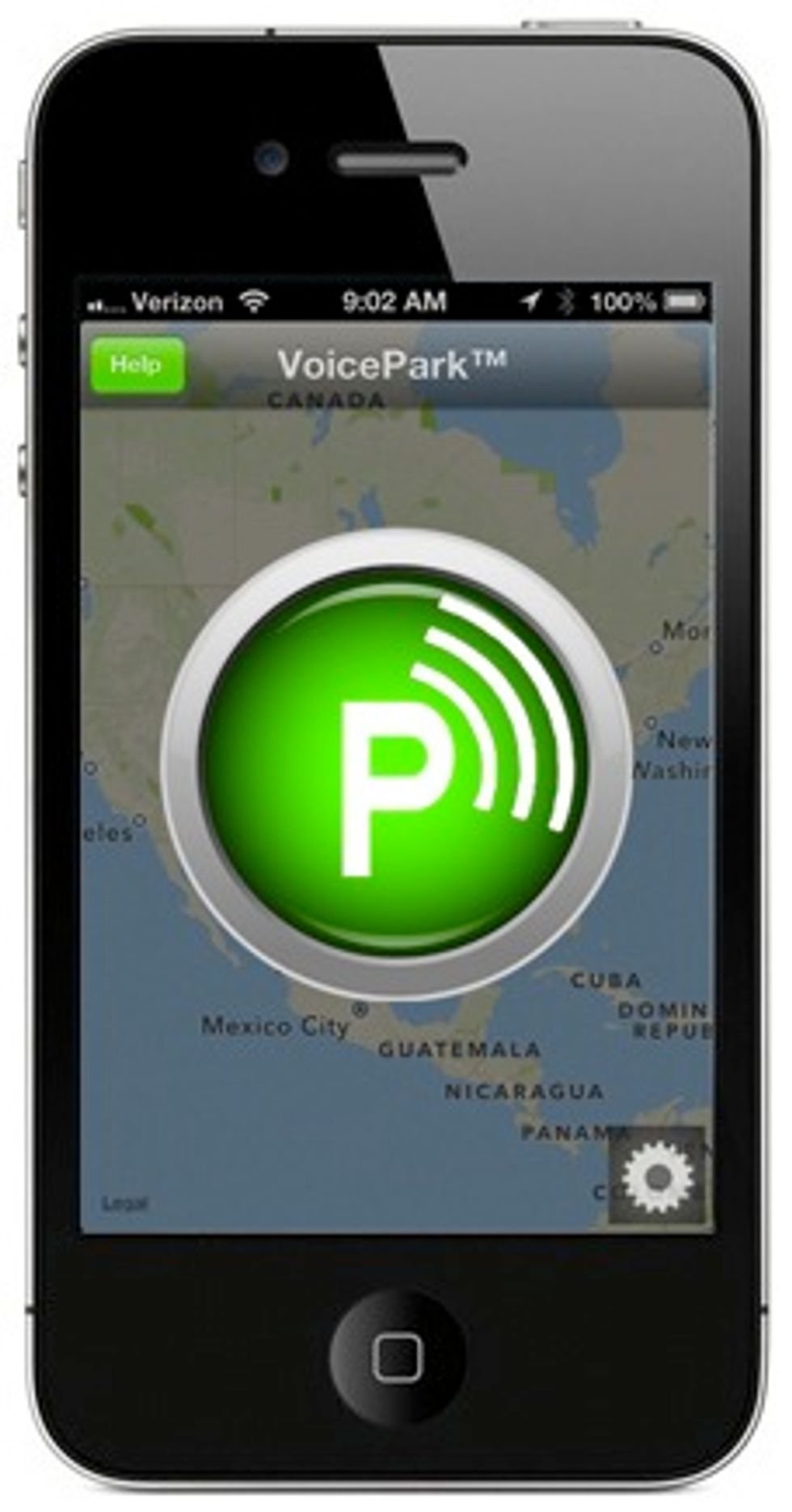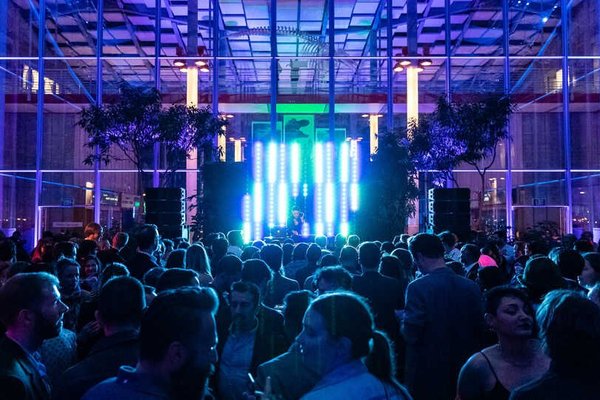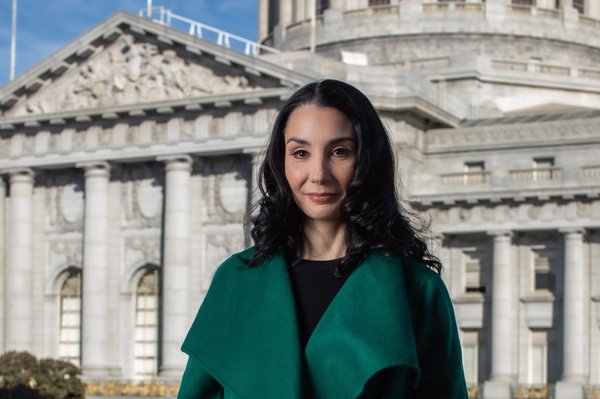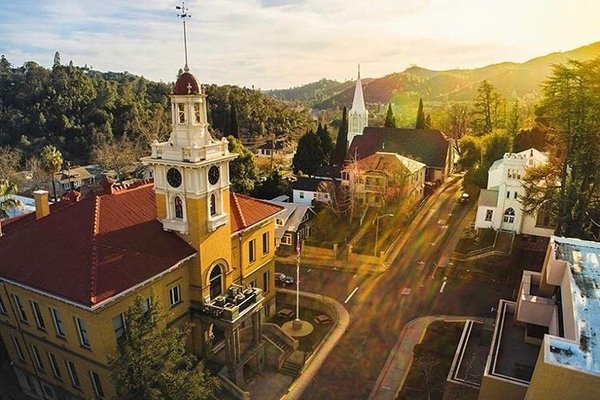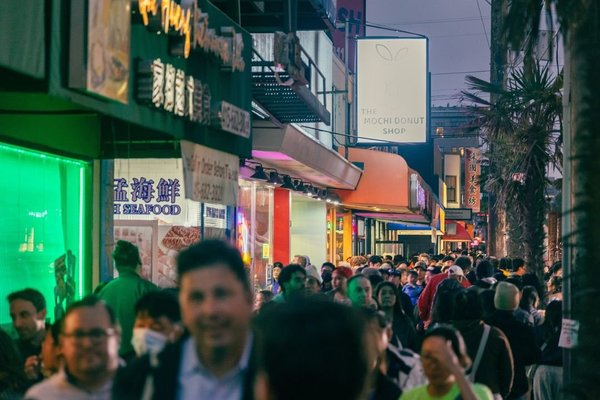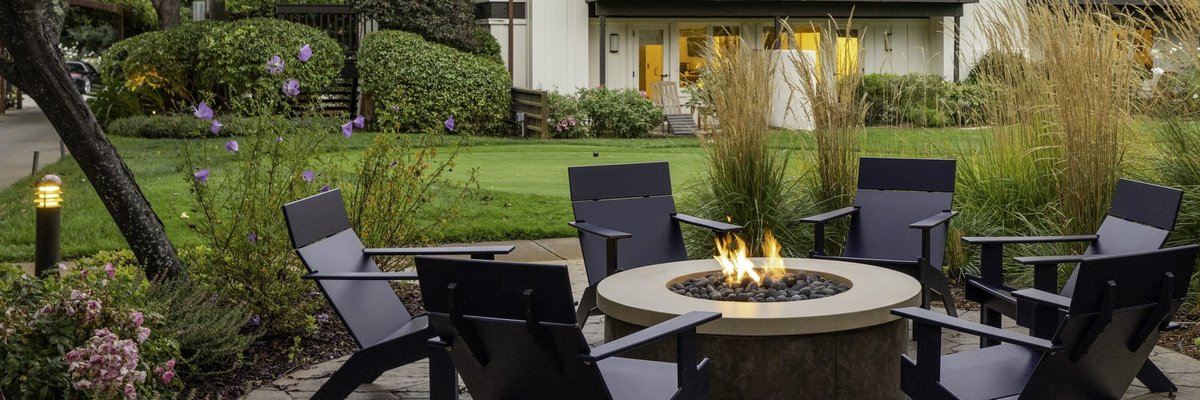When it comes to parking apps, hands down one of our favorites is VoicePark, conceived by our very own parking guru, David LaBua. As SXSW's tech and interactive sessions wind down, VoicePark's second version is gearing up to save the rest of us time and even money when it comes to the never-ending quest for parking in San Francisco (and beyond). Here, an interview LaBua, author of Finding the Sweet Spot and CEO of VoicePark.
What is VoicePark?
VoicePark is a smartphone app that guides you by voice, turn-by-turn, in real-time, to the absolute closest available parking spot.
Apple or Android?
Version 2.0 is available on iPhones on iOS 6.0. The iPhone beta version is still out there if you haven't upgraded yet. The beta Android version is available in May.
How was the idea for this app born?
It started when I spent over and hour to find a parking spot in North Beach one night, eight years ago. That’s when I began researching parking for the book Finding the Sweet Spot. I also love systems theories, solving problems, and technology, so it really was sort of a perfect storm.
Does VoicePark find garage parking or street parking?
It will find you whatever you’re looking for. There is a setting for garages, street parking, or both. The street parking feature works in the cities where there are sensors in the streets. Currently the app will guide you to 7,000 of San Francisco’s 29,000 metered parking spots and to 12,250 publicly owned garage spots in six pilot areas. And we’ve recently added 50,000 spots in privately owned public parking garages such as Ace and Ampco.
How many garage spots will VoicePark guide people to?
Over 3,000,000 spots in 40,000 garages in North America and soon, 8,000 garages in Europe.
What cities are available now?
San Francisco, San Jose, Oakland, Los Angeles, Dallas and Austin.
Why aren’t you releasing all of the cities at once?
Our philosophy is to make sure that VoicePark works highly accurately before releasing it in each city. So, we have people driving around testing it in each city before it is released. We most recently tested and released Dallas and Austin while we were at SXSW.
How do you account for its rapid rise in popularity?
Because it dramatically reduces the time and stress that it takes to find a parking spot. VoicePark has reduce the time that it takes to find a parking spot in San Francisco from six and a half minutes to 45 seconds.
What’s the competition like?
Other apps require you to hold your phone and look at a map and decipher color coded curbs and other information while you drive. With VoicePark, you just have to push a big green button, and you are easily guided by voice. Privately owned garages have their own non-voice guided map apps, but only to their garages, which may not be close to your destination. Cities have their apps showing maps to drivers to publicly owned garages, but not to the other hundreds of lots and garages. VoicePark has it all. Privately owned, publicly owned, on-street, off-street, and voice guidance.
What are some of the challenges that you’ve faced up to this point?
It seemed like a fairly straightforward idea, but to really build it right, it turned out to be quite complicated. We’ve done things like build in algorithms that guide drivers to the spot even when the GPS signal is lost. Another challenge has been that the sensors currently in the streets of SF are only about 80% accurate, but that number is going to improve drastically quite soon. The pilot program was just that. A test to see if this would work and if it did, to determine what needed to be improved. One thing that needed to be improved was the real-time function. We’ve designed a system that refreshes the data every few seconds, and in the world of parking, seconds matter.
The app probably will have a good carbon effect as well.
For sure. One third of all traffic in every major metropolitan area is composed of people driving in circles looking for parking. By efficiently funneling those cars to the nearest open spots, and reducing the time they are on the road by five-plus minutes, well, that is huge.
How huge?
Totally huge! Okay, here’s a conservative example. Out of the 600,000 vehicles in SF, in any given hour there are 10,000 cars looking for a place to park. If they are all using VoicePark, and reduce their looking-for-parking time by 5 minutes, and drive half a mile less as a result, that is 50,000 minutes and 5,000 miles saved. According to the EPA, the average passenger vehicle emits 423 grams, or about a pound, of CO2 per mile. So, in one hour, in one city, this little app could prevent 5,000 pounds of CO2 from being released into the atmosphere. In a day, let’s say it saves 20,000 pounds of CO2. In a year, that would be 7,000,000 pounds. And once the app is used in 40 cities across the country, it will prevent about a quarter of a billion pounds of CO2 from being released into the atmosphere each year.
That is staggering.
I know. It blows my mind. And, if 10,000 drivers save 50,000 minutes of collective driving time looking for parking in any given hour and 200,000 minutes are saved in a day, that’s 8 million hours of extra time a year that is saved. That comes out to about 21 hours per year per person not wasted driving in circles.
And it would reduce the number of arguments caused by people not being able to find parking and being late for an appointment. Think of all marriages that will be saved. And countless vacation days ruined because Dad couldn’t find a place to park, or because the car got ticketed and towed.
Will VoicePark prevent a driver from getting a ticket?
Yes, every spot it finds you has all of the parking times and parking laws built in. The app will never guide you to a spot that isn’t legal to park in.
So, what’s on the horizon for VoicePark?
The Android version will be out in a couple of months. We’re having conversations with sensor manufacturers, municipalities, and garages – our app plus their sensors makes parking even better. We’re adding electric vehicle charging spots. We’re showing up in new channels that have been somewhat off limits to date, and we’re having interesting conversations that could put VoicePark on everyone’s map all over the world.
What do you see in the future for VoicePark and parking in general?
I see VoicePark just getting better and better, making peoples’ lives a little less stressful, one parking spot at a time.
To check out VoicePark 2.0, click here.



